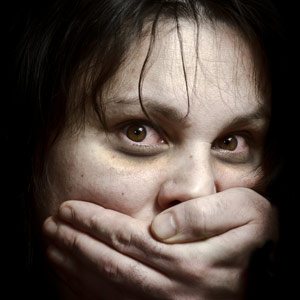
Violence committed against learners who do not conform to hetero-normative roles and behaviours, more specifically lesbian, gay, bisexual, transgender and intersex (LGBTI) learners, is pervasive in South African schools. This violence largely goes unchallenged. Policy-makers and teachers must urgently take steps to ensure the safety of these learners, and promote school environments respectful of diversity and human rights.
We know from our own history that prejudice is a breeding ground for violence. The school environment is no different to the rest of society in that, despite the policy framework that protects learners from discrimination, hate speech and hate crimes are still a common experience amongst LGBTI school-goers.
Gender roles and identities
School-going years are a critical time in the formation of a person's individual and social identity. Part of this process is the learning of gender roles and identities. This takes place both within and outside of the classroom, largely based on the social construction of what it means to be a 'man' and a 'woman' in society.
Whilst youth have the opportunity to both challenge and redefine traditional gender constructions, this is often perceived as posing a threat to the status quo and the prevailing power systems which serve to maintain the dominance of masculinity and heterosexuality. For example, young women who may identify as masculine are often the targets of violence when they refuse to wear the appropriate school uniform.
"I remember a lesbian at my school always dressed like a man. She preferred to socialise with the guys at school. The hostel mother and the other girls used to give her a hard time for not acting like the other girls. One time the other girls beat her up," says Sello, a black gay deaf man in his early 20s.
Although the reaction to LGBTI youth is still often one of intolerance and prejudice, this may be slowly changing in urban areas. Responses by learners to a Gay and Lesbian Archives (GALA) exhibition featuring life stories of gay and lesbian youth at the Apartheid Museum were largely positive.
Learners were encouraged to write on a chalkboard as part of the exhibit. On learner wrote, "If we can't respect our people it will be apartheid again so let us respect and appreciate diversity in our country."
Whilst educators have the responsibility to role model the type of society we want to fashion, they often struggle the most to engage with issues perceived as taboo and often silenced in the classroom.
"High school was probably the worst... like being called 'gay' and 'faggot'. I'd walk out of a class and down the corridor, and someone would say, 'Shake that ass, baby'... Teachers never intervened." – recalls Bradley, a coloured gay man now in his late teens.
The education sector has a powerful role to play in actively addressing prejudice and discrimination against LGBTI learners and teachers. Educators are leaders in transforming society to embrace difference and respect diversity.
For this reason, OUT and GALA are working within the sector to sensitise policy-makers and teachers to issues that affect learners in relation to sexual orientation and gender identity.
The Department of Education should mainstream sexual orientation, positioned with the broader ambit of gender equality, within programmes to address school violence. This includes the integration of such issues into policies on victimisation and bullying at schools. In addition, Codes of Conduct and enforcement mechanisms for all schools should explicitly include sexual orientation.
Most importantly, as key role models for the youth, we need educators that are clear on their role as advocates for human rights and the protection of the dignity of youth. Educators should engender an awareness of the dynamics that aid targeted violence and abuse within the classroom, and lead on a proactive response to this concern.
The South African Schools Act makes imperative that a school must serve learners' educational requirements without unfairly discriminating. This will be achieved only by ensuring a safe and affirming school environment that respects the rights of every learner.
(Melanie Judge is the Programme Manager at OUT LGBT Well-being and Ruth Morgan is the Director of the Gay and Lesbian Archives of South Africa. This is part of a series of articles produced by the Gender Links Opinion and Commentary Service for the Sixteen Days of Activism).
Have you experienced homophobia? Tell us about your experience in the box below.




 Publications
Publications
 Partners
Partners










